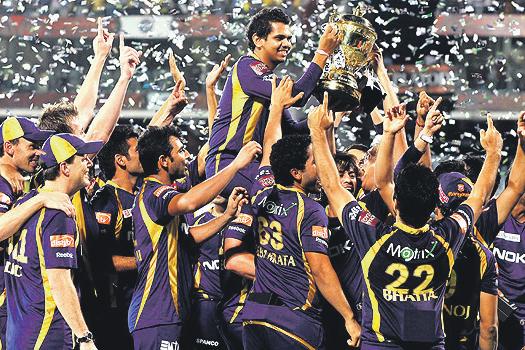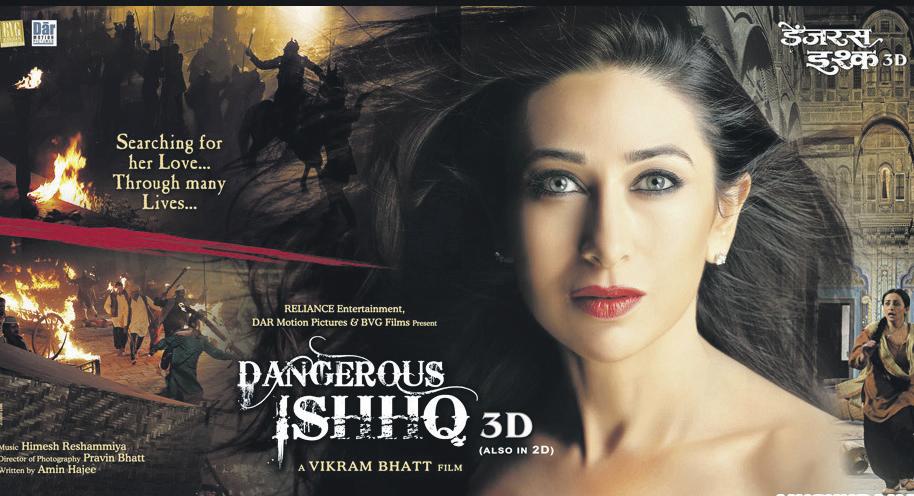
3 minute read
Korbo, lorbo, jeetbo
from 2012-06 Sydney (1)
by Indian Link
The KKR’s resounding victory at IPL 2012 proves that they can survive without their Prince, and win for their King
BY RITAM MITRA

In the first three seasons of the Indian Premier League, the Kolkata Knight Riders was the laughing stock of the country, and indeed the cricketing world. Until last year, it was the only team to have never reached the semi-final stage, and even then it never seemed likely that they would take the title. It was a sweet victory then, for Shah Rukh Khan’s men, as they took out IPL 2012 in a comprehensive win.
From the very first edition of the IPL, Kolkata were an enigmatic team, fun to watch at the best of times, but positively frustrating at the worst. The glitz and glamour is still there (how could King Khan let it be any other way?), but importantly, it now plays second-fiddle to their cricket. The auction strategy itself showed their desire for a change in direction – Kolkata released all of their players in 2011 and forged themselves a brand new team.
The big story of the season began off the field, of course – as has been the case far too often with the Indian Premier League. Sourav Ganguly, the Prince of Bengal, had moved to the Pune Warriors as captain of the franchise. Split loyalties were but a formality, as was the case when Ganguly was ejected from the Indian team during Greg Chappell’s reign as coach, and spectators at Eden Gardens cheered South Africa on in their comprehensive thrashing of the hosts.
The conflict between Shah Rukh and Ganguly was wellpublicised and brought the actor a torrent of unwarranted criticism – for at the end of the day, the Prince of Bengal failed to notch up a half-century in the entire season, and scored at the lowest strike-rate and average for any batsman with more than 200 runs. However no cricketer, and perhaps no sportsperson in the world commands as much respect and adoration as Ganguly does in Kolkata. Even Sachin Tendulkar has been booed at the Wankhede stadium in Mumbai. Ganguly, though, carries with him an aura that stretches back to his days as captain – Ganguly was, and always will be, treated like royalty. From a Kolkata fan’s perspective then, it was purely absurd to have Ganguly captaining the Pune Warriors. Many had torn allegiances – if Pune won, Kolkata fans would rejoice in Ganguly’s happiness; it was as if Kolkata was just another hometown for Pune.

The Knight Riders started with a couple of underwhelming losses, which were exemplified further by the fact that Pune won three of their first four matches. Ganguly’s batting had left much to be desired, but after picking up two wickets in a crucial spell against Delhi, the eventual tabletoppers, Ganguly ran around the field like a schoolboy; his passion will forever be unquestionable.
Unfortunately for Pune, that was as good as it got – they lost each of their last nine matches, including both of their highly anticipated grudge matches against Kolkata. Kolkata, meanwhile, only got better as the season progressed. They were the most consistent team throughout the group stages, hampered only by problems with the middle order.
Gautam Gambhir and Jacques Kallis were both in stunning form; however, it was little-known West Indian spinner, Sunil Narine, who stole the show and was named the Player of the Tournament. Narine confounded batsmen with his variations, and took 24 wickets, one less than tournament leader Morne Morkel, at the extraordinary economy rate of 5.47. The only other bowler with an economy rate less than 6 in this edition was none other than Lakshmipathy Balaji – Kolkata’s frontline seamer, who played a pivotal role throughout the tournament until injury saw him benched for the final.
The hallmark of the season for the Knight Riders is that there were very few highlights to speak of, in the most widely used sense of the term. The team peaked only towards the back end of the tournament, quelling a vicious Delhi batting line up and then only scoring their highest score of the tournament in the final against Chennai. The only highlight Kolkata can point to is consistency – and perhaps the national team can take note of this.
Looking at the bigger picture, Gautam Gambhir led an outfit that will challenge strongly at the Champion’s League later this year. He also again pressed his own claims for leadership duties at the national level, having been unceremoniously dumped from the vice-captaincy earlier this year when selectors gave Virat Kohli the honour instead. It will have been a nice personal victory, then, for Gautam Gambhir to lead a team against his national captain in MS Dhoni, and come away on top.
Gautam Gambhir and Jacques Kallis were both in stunning form; however, it was little-known West Indian spinner, Sunil Narine, who stole the show and was named the Player of the Tournament.









